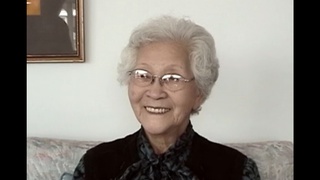インタビュー
アジア太平洋諸島法学生協会の共同設立
私たちは黒人やチカーノの法学生と会い、彼らは私たちを励まし、アファーマティブ・アクションの枠をめぐって学校が彼らを互いに争わせてきたことを話してくれました。そして彼らは、記録に残るように、あなたたちのためにそうなるなら私たちの枠を犠牲にすると言いました。もし彼らが、少数派の枠があまりにも多くて、それを獲得するためには黒人やチカーノの学生と戦わなければならないと言ったら、私たちは今あなたたちに伝えます。私たちはあなたたちに1つか2つの枠を与えるかもしれません。彼らがそれを示したらすぐに、この団結が私たちにとってどれほど重要であるかを学校に示すつもりです。そして、興味深いことに、私はそれを持ち出す必要はありませんでした。私たちはそこに行き、彼らは私たちにいくつかの枠を与えました。ご存知のように、私は2つの組織に連絡を取る必要はありませんでしたが、そこに団結があることがわかり、私たちは本当に最初からより大きな運動の一部として出発したのです。
それは決してアジア系アメリカ人に関することではありませんでした。私たちがどれだけ大きな運動の一部になれるかということであり、そのためには弁護士が必要でした。私たちのコミュニティをあるべき場所に引き上げるためにも弁護士が必要でした。しかし、繰り返しますが、それは常に大きな運動でした。それは常にすべての人に利益をもたらすものでした。私たちが自分たちのために行う利己的な小さなことではありませんでした。それは原則の問題であり、人々だけの問題ではなかったため、私たちはそこから始めました。私は彼ら、浅利俊二氏、史上最高の公選弁護人の一人となった故ジョージ・ヨシヨカ氏、ジム・ウエダ氏、ジョン・マエダ氏、グレン・オセジマ氏に感謝したいと思います。私たちはたくさんいました。卒業する頃には9人になりました。
私が常に組織に持ち帰ろうとしてきたことの 1 つは、常に自己利益よりも社会正義が優先されるべきだということです。私たちが代表する問題は、私たち自身の小さなコミュニティだけの問題ではありません。小さなコミュニティ 1 つに対する正義は無意味であるため、社会全体、あるいはどの社会においても、実際には重要ではありません。ですから、人々が左右を見渡して、私たちが求めていることの意味を理解することが重要でした。それは、すべての人を代表して行われなければなりません。
日付: 2020年7月14日
場所: 米国、カリフォルニア州
インタビュアー: マシュー・サイトウ
提供: 全米日系人博物館、ワタセ・メディア・アーツ・センター; Japanese American Bar Association












